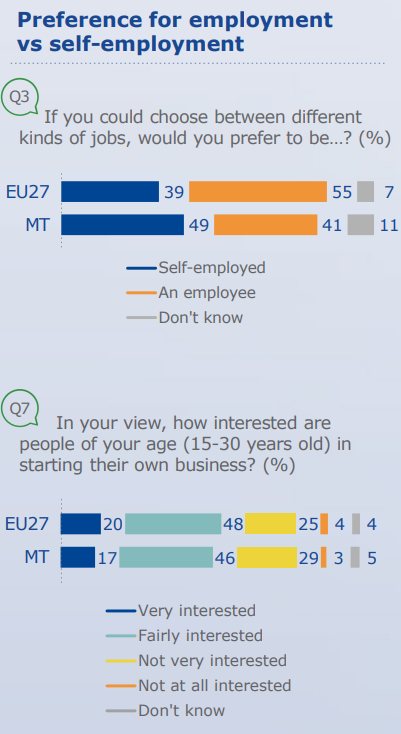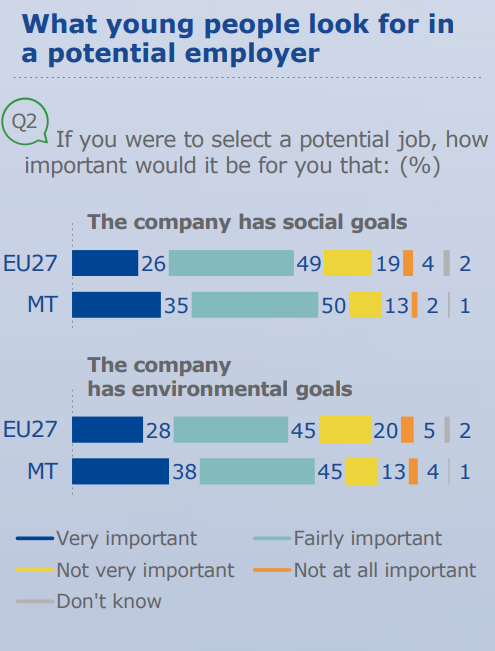A Eurobarometer survey recently conducted to evaluate entrepreneurship among youths aged 15 to 30 years old found that the spirit of enterprise is strong among the country’s Gen Z and Millennials. Only three per cent of all youths based in Malta ruled out the idea of starting their own business.
49 per cent of youths in Malta stated that they’d rather be self-employed, compared to 41 per cent who preferred being employees. This is a fairly stark difference compared to the EU average, a clear majority of whom (55 per cent) would rather be employees.

Among the country’s youths, 17 per cent said they’re very interested in starting their own business, with 48 per cent being fairly interested.
The independence of being their own boss was one of the main drivers for half of Malta’s youths interested in starting their own business. Other common reasons were the freedom the choose their own time and place of work (40 per cent) and better income prospects (37 per cent).
When asked what their top three goals would be if the started their own business, the most common one was to follow their passion/interests (63 per cent), followed by the opportunity to put their innovative ideas into practice (35 per cent).
34 per cent of youths simply declared that one of their top goals would be to become wealthy.
While there is fairly broad interest in starting their own business, over a third of youths said that they would need financial support in the form of grants to get started, and more than half said they either need help with legal requirements or tax requirements.
This could indicate that, if the bureaucratic process of starting and running a business was simplified, it could bolster a new wave of youth-run enterprises that may find the web of requirements too intimidating to put their ideas into practice.
When asked what Malta’s youths looked for in potential employers, they were asked how important it was for the company to have social and environmental goals.

The overwhelming majority of youths indicated that at the very least, they view social goals as fairly important (85 per cent), with only two per cent not giving them any importance at all. Similar responses were given for environmental goals, with 83 per cent of youths giving them importance, while only four per cent not giving them much importance at all.
On both metrics, Malta’s youths give more importance than the EU average. This means that, to attract youths into their workforce, businesses will need to put in visible effort in displaying social responsibility in their activities.
255 third-country nationals ordered to leave Malta in first quarter of 2025
Returns across EU rise, but Malta’s numbers remain modest
Inbound sea tourism dips by 2.3% in early 2025
The overall outlook for Malta’s tourism sector still remains optimistic
Transport Malta tight-lipped on enforcement plans for white taxis and coaches
Uncertainty also remains over the technology used and how enforcement will be applied






